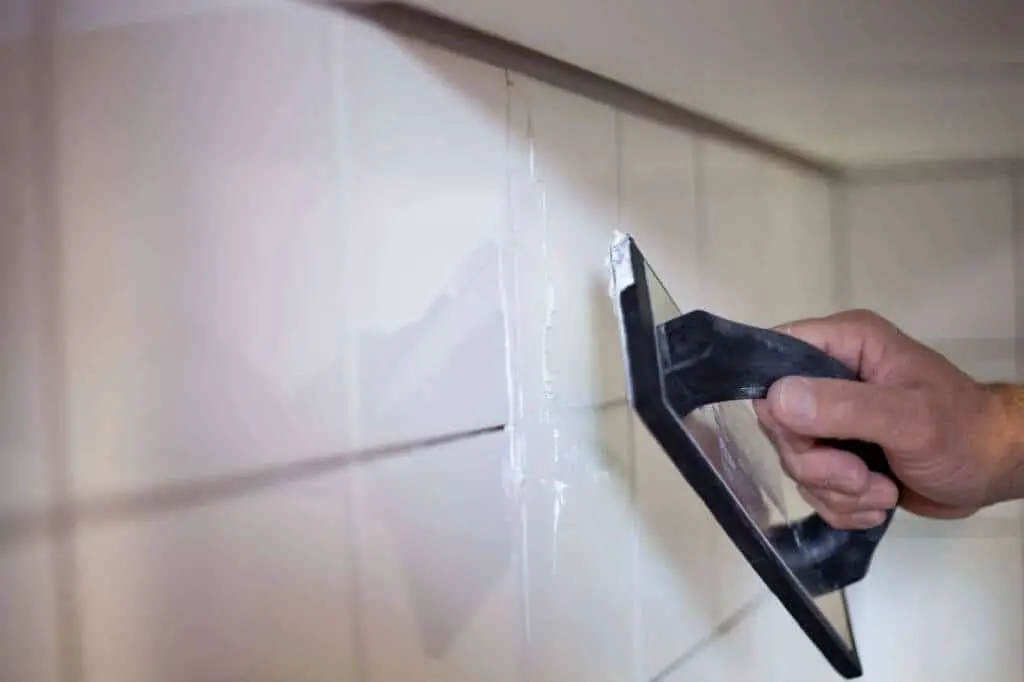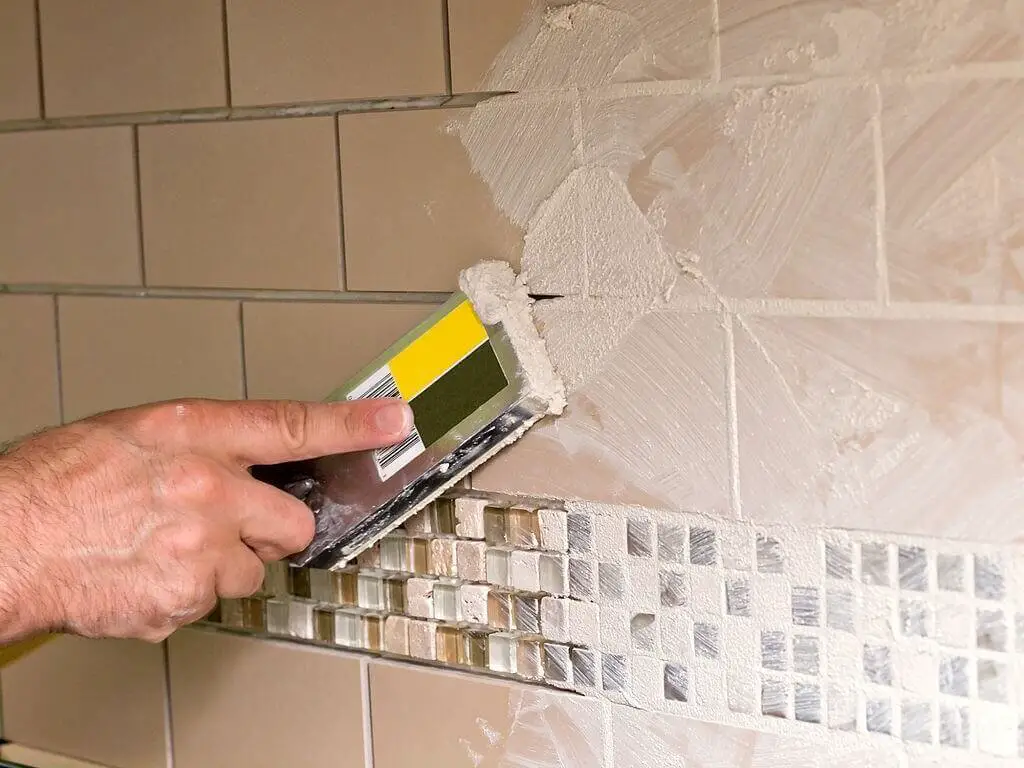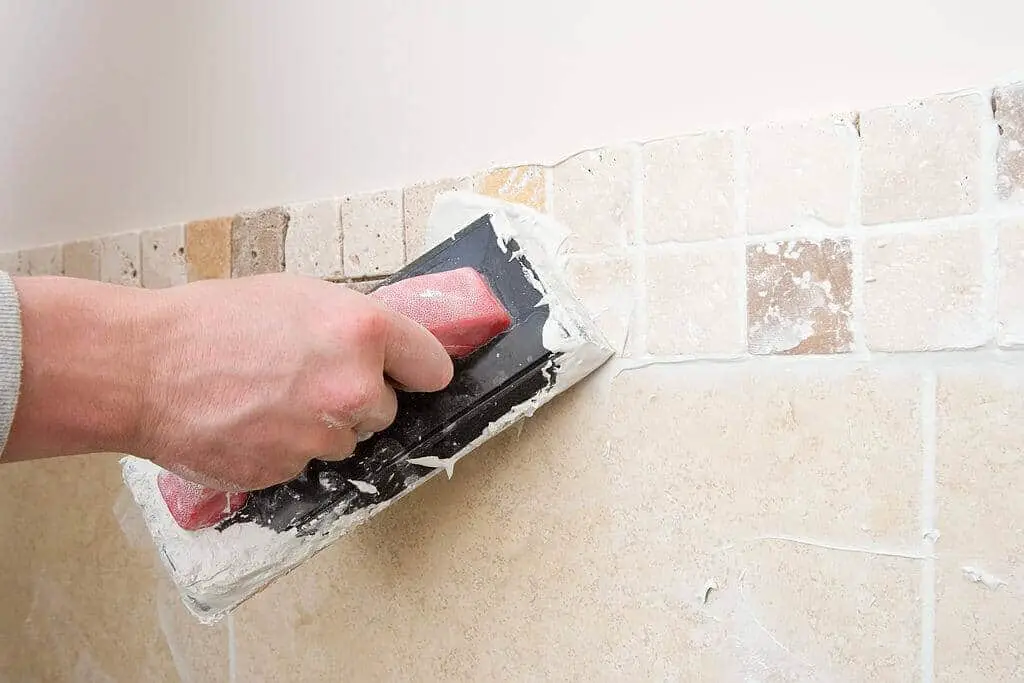The grout on your tiles is basically the holding blocks of the tile; without it, there would be gaping holes in your tiles that would make them completely unusable. So taking off your tile grout is as important as taking care of your tile flooring itself.
Are wondering if vinegar can ruin your grout? Yes it can. Vinegar is known to be an all-purpose cleaner and odor eliminator, but there are limits to its usage; using vinegar to clean your tile will cause more harm than good, and many people are ignorant of this fact.
Can Vinegar Ruin Your Grout?
Table of Contents
Vinegar is one of the most popularly used home remedy type of cleaners for hardwood floors. It cuts through the dirt without damaging the floor, but that depends on the type of flooring you are dealing with. The acid in the vinegar will eat away at the grout of the tile and get rid of its shine.
Even though many people rely on vinegar to clean, it is highly recommended that you do not use it to clean your tile and grout, because it will end up discoloring your floors.
You might be wondering why vinegar can cause damage to your tile grout when vinegar is known as a great purpose cleaner. Well, it all comes down to the composition of the tile grout.
What is a Tile Grout
Grout is a dense fluid that is used to fill gaps and serves as reinforcement in existing structures. Grout is generally a mixture of cement, water, and sand, and it is primarily used in filling voids and sealing joints such as those between tiles.
It is often color-tinted so that it can be kept visible; fine gravel is sometimes added to this mixture when being used to fill large spaces such as the cores of concrete blocks.
The fact that the grout mixture is mainly composed of sand means that it is a porous solution, which can easily be corroded by an acidic solution.
This can be combatted by properly sealing your tile grout, and you can find out if your grout is still properly sealed or not by pouring a drop or two of water on the grout area and observing what happens to it.
If the color of the grout changes or becomes darker, then your grout sealing has been compromised and needs resealing, but If there is no such change, then the grout is sealed. If your grout is sealed properly, you can go ahead and use vinegar on your grout but in the right way.
How to Use Vinegar to Clean Your Tile Grout Without Damaging it
If your tile floor has been properly sealed, you can use vinegar as a cleaner, but you want to regularly check on the authenticity of your grout and reseal when necessary.
You can make a safe and properly diluted vinegar solution for your grout cleaning; to do this, you need to mix two parts vinegar with one part water.
Mix thoroughly and apply the mixture to the grout area and let it sit for about 15 minutes until it properly moistens the area.
Then use a wet sponge to wipe it off completely; you want to make sure you completely remove the vinegar from the surrounding surfaces to prevent the vinegar acidity from damaging them.
You should be left with a sparking grout. This is an easy cleaning method that can only be done on sealed grout and some specific type of tile material. Marble and travertine tiles can be damaged by vinegar also.
Other Cleaning Substances That can Damage Your Tile Grout
Vinegar is not the only enemy of unsealed grout; there are a couple of other products that should not be used on unsealed grout;
Water
Yes! You read that right, while water might be necessary for cleaning grout, too much of it can also be detrimental to the lifespan of the grout, weakening its bonding abilities causing the grout to lose its main purpose up to the extent that it would need to be replaced.
Bleach
Bleach, especially chlorine-based ones, can penetrate the pores of your grout, corroding and damaging it from the insides. Chlorine-based bleach can even damage your tile material.
What You Can Use to Clean Your Tile Grout
It might seem like all the great cleaning items have been put on the “do not use” list, but that’s not the case. There are tons of other great cleaning options you can use on your grout with fear of damaging it or your tile floor itself.
Read: Do steam mop damage tile floors?
Hydrogen Peroxide and Dish Soap
The mildly abrasive properties of the baking soda help lift dirt from the porous grout, while the hydrogen peroxide acts as a gentle, non-toxic bleach. For even more cleaning power, you can also add a dash of dish soap to the mix.
A good ratio is ½ cup baking soda, ¼ cup hydrogen peroxide, and one teaspoon dish soap. When you apply your mix, let it sit on the grout for about 10 minutes. This allows the mixture some time to loosen the dirt. Then gently scrub and wipe the surface clean with a damp cloth.
Baking soda
This is An easy way to clean grout stain. Simply mix some baking soda and water to create a thick paste consistency. Use an old toothbrush to apply this paste to the grout and gently scrub it clean. This is among the best homemade grout cleaners.
Boiling water
This might seem like an odd method, but it is actually one of the simplest ways to clean grout. To start, bring a kettle of water to a boil. Then pour a bit of the boiling water directly onto the grout. Use a scrubbing brush to gently scrub the grout in a circular motion.
Do this in small batches at a time, so that the water doesn’t have too much time to cool. The heat will release the grime. Afterward, you can simply use a towel to dry the excess water.
Read: How long does it take grout to dry
Conclusion
Many people make the mistake of using vinegar on their unsealed tile grout, damaging it to the extent it needs replacement, and when they ask the question “can vinegar ruin your grout,” and when they get yes as an answer, it comes at a shock.
That the beloved all-purpose item can actually have something it destroys; well, they say knowledge is power, and this knowledge will save you some money on grout replacement.


